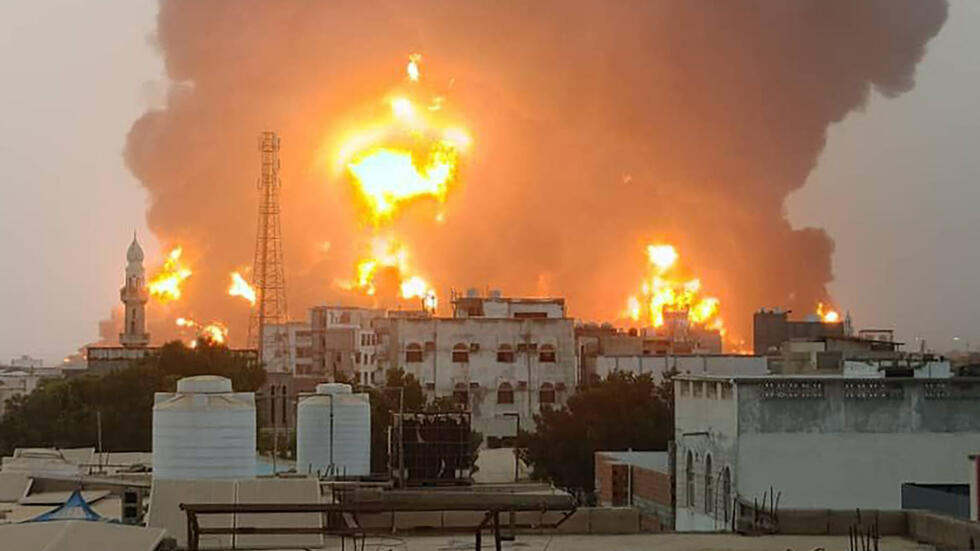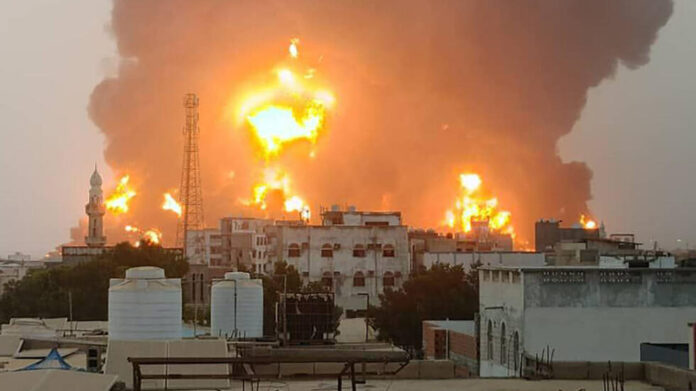
Israeli warplanes launched strikes on the Houthi-controlled Yemeni port of Hodeida on Saturday, marking a significant escalation in the conflict between Israel and the Iran-backed Houthi rebels. The attacks were carried out in retaliation for a drone strike by the Houthis that killed a civilian in Tel Aviv the previous day.
The Israeli airstrikes on Hodeida, located approximately 1,800 kilometers (1,100 miles) away from Tel Aviv, triggered a massive fire and thick black smoke that could be seen across the Middle East. The strikes targeted what Israel described as “military facilities” of the Houthi “terrorist regime,” including fuel storage sites and a power plant.
Israeli Defence Minister Yoav Gallant condemned the Houthi attack, asserting that “the blood of Israeli citizens has a price.” He further warned that Israel would continue its operations against the Houthis if they persist in their attacks. “The fire that is currently burning in Hodeida is seen across the Middle East, and the significance is clear,” Gallant stated.
The Houthi rebels, who have previously claimed responsibility for attacks on Israeli cities including Ashdod, Haifa, and Eilat, marked Friday’s drone strike as the first successful breach of Israel’s air defences. The Houthis’ assault on Tel Aviv came as a direct response to the ongoing Israeli-Palestinian conflict, with the Houthis vowing to support Palestinians in Gaza.
In a statement following the strikes, top Houthi official Mohammed Abdulsalam denounced the Israeli attacks as “brutal aggression against Yemen.” He claimed that the strikes on Hodeida were aimed at pressuring Yemen to halt its support for Palestinians.
The Houthi-run health ministry reported casualties from the strikes, though specific numbers were not disclosed. According to Al Masirah television, several individuals sustained “serious burns” from the attacks. Footage from the channel showed extensive fires and explosions at the port, a critical lifeline for Yemen’s humanitarian aid.
The port of Hodeida has been a crucial entry point for imports and international relief to Yemen, which has been suffering from a prolonged conflict and severe humanitarian crisis. Mohammed Albasha, a senior analyst at the US-based Navanti Group, warned that the Israeli strikes could worsen the already dire food security and humanitarian situation in northern Yemen.
The United Nations Secretary-General Antonio Guterres had previously called for “maximum restraint” following the drone strike on Tel Aviv, urging both sides to avoid further escalation. However, Houthi politburo member Mohammed al-Bukhaiti has vowed retaliation for the Hodeida strikes, threatening to escalate the conflict further.
Sources By Agencies



